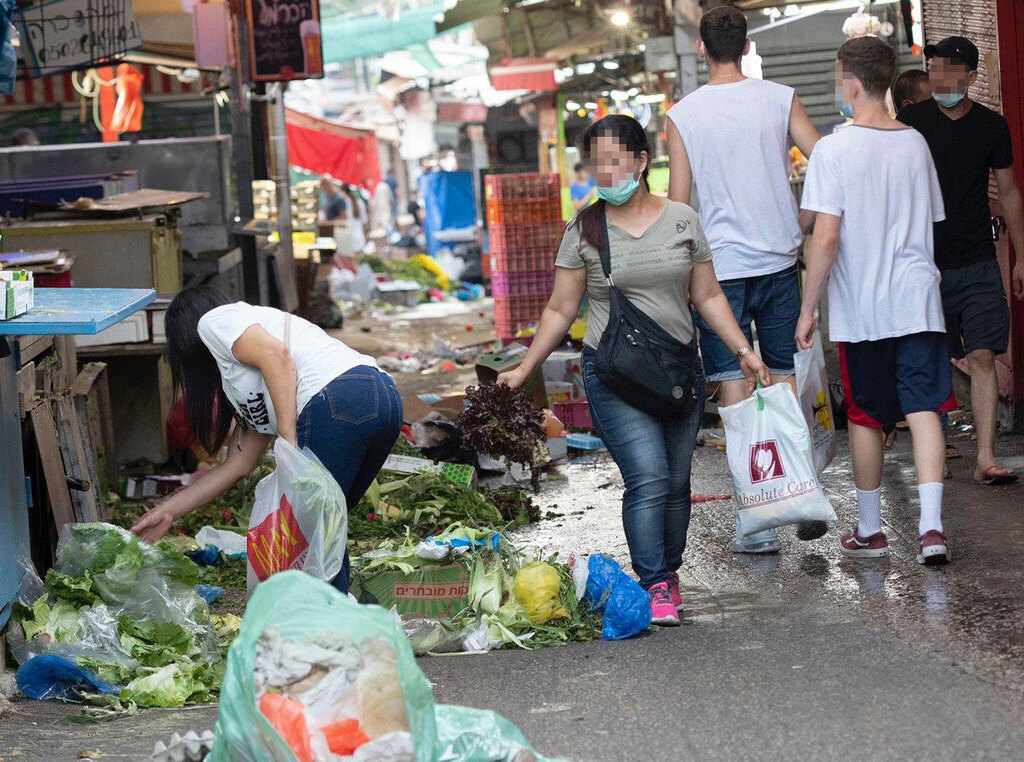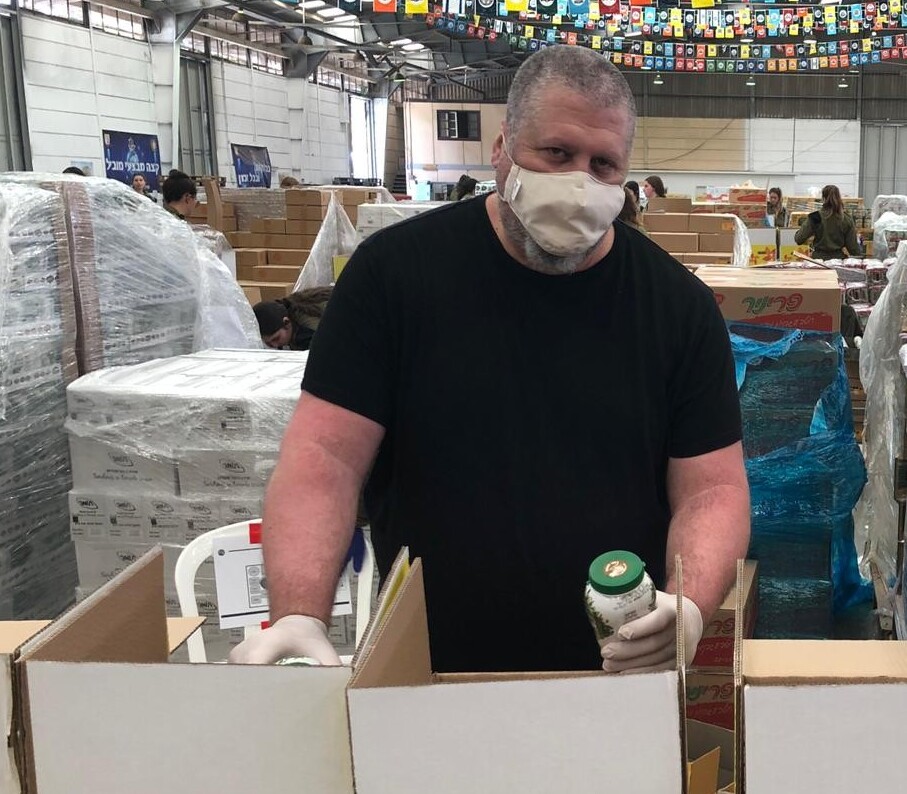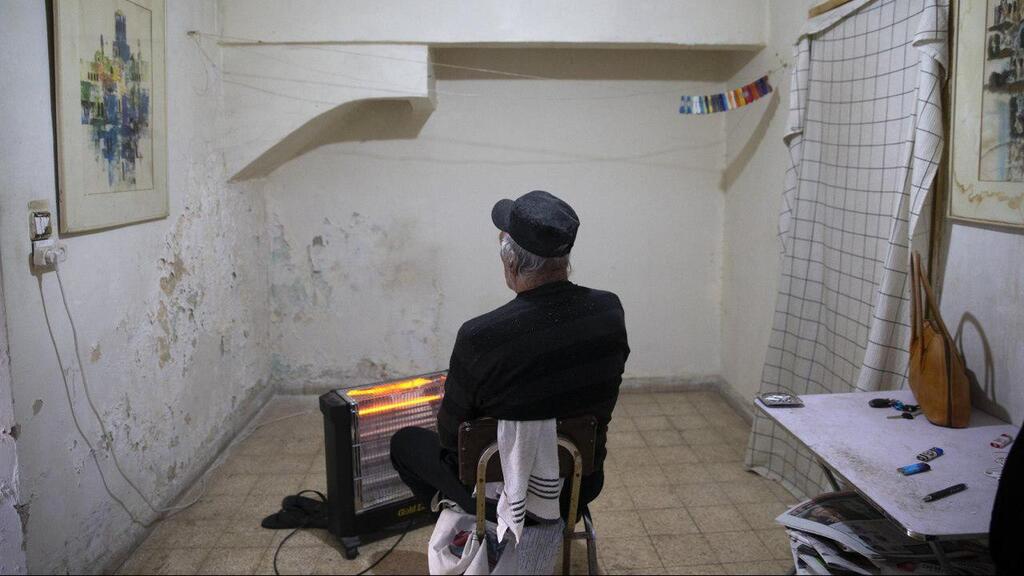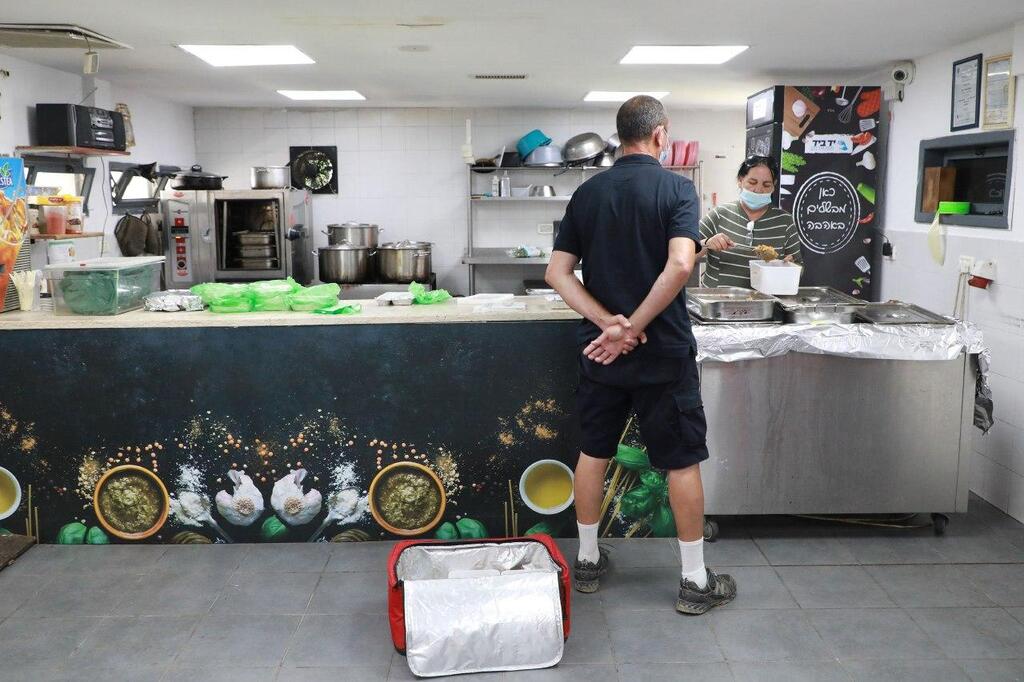Getting your Trinity Audio player ready...
The number of Israeli households below the poverty line has grown by nearly 50% during the coronavirus pandemic, with 268,000 people falling into destitution, according to a report published Wednesday by Israel's largest anti-poverty NGO.
According to the annual Alternative Poverty Report by Latet, the number of Israeli households living in poverty rose from 20.1% to 29.3% in 2020.
4 View gallery


A woman searches the garbage for food at an Israeli market during the coronavirus pandemic
(Photo: Nadav Abas)
It said an estimated total of 850,000 households in Israel lack essential housing, education, healthcare and food.
Amid the coronavirus pandemic, 422,000 new Israeli households found themselves in financial hardship, the report said. The percentage of the households that suffer from financial hardship jumped from 24.1%, before the pandemic, to 38.6%.
Unlike the State of Israel’s official poverty report, which measures poverty based on income alone, Latet measures poverty according to households lacking in essential needs such as housing, education, healthcare, food security, and the ability to cover the cost of living.
About 143,000 households, an increase of 4.8%, have been newly categorized as food insecure since the beginning of the pandemic, and 34,000 have been newly categorized as dealing with extreme food insecurity.
The study also reports that 86% of elderly aid recipients are experiencing loneliness. Of this group, 21.6% fear they might die at home with no one knowing.
Israel has seen unemployment surge to over 20% since the country first imposed a nationwide lockdown at the start of the outbreak in March. The country's vital tourism industry has shrunk to virtually nil and thousands of businesses have closed.
The report, which was based on the findings of a series of surveys and studies conducted by Latet from July to October 2020, also found that Israel’s middle class has shrunk by 15.5%, with 29% of the middle class’s financial scores decreasing.
Amid the pandemic, 50.7% of Israel’s general population reported significant economic damage, while only 19.6% reported significant health damage.
Only 23% of Israeli households report that their financial condition is standard or above standard, compared to 45% pre-pandemic.
The need for financial help among Israel’s population jumped by 70% amid the pandemic. Twenty-four percent of Israel’s population report that they did not get financial help although they needed it.
Furthermore, 79.1% of the Israeli public believe that the government should be the one to address the rising poverty numbers. Only 21.3% think that the government is fulfilling its responsibility to do so.
“The surge in poverty rates confirms the most pessimistic economic forecasts of the beginning of the crisis and highlights the weaknesses of the ecosystem in Israel,” said Founder and President of Latet Gilles Darmon.
“The coronavirus has upset the delicate economic balance and pushed tens of thousands of new families into economic hardship and poverty, but it is the state that has created the conditions for this fragility, by previously refusing to invest significantly in those families to build social resilience,” he said.
“The coronavirus pandemic erupted as a health epidemic and has developed into an unprecedented socio-economic epidemic,” said Latet Executive Director Eran Weintrob.
4 View gallery


Latet Executive Director Eran Weintrob assisting at a food bank during the pandemic
(Photo: Courtesy)
“We are in the worst economic crisis in the country’s history, which will take Israeli society years to recover from. We have to stop the bleeding as hundreds of thousands of Israelis descend from a temporary crisis due to loss of employment into a life of poverty from which it is difficult to impossible to recover.”
He warned that if the government does not invest tens of billions of shekels in the most vulnerable communities, “the collapse will be inevitable and create social gaps that cannot be bridged.”
Gilad Tanay, the founder and chairman of the ERI Institute, which complied the data said:
"This research was conducted in the midst of one of the greatest economic crisis we have known. Hence, we have expanded our focus beyond conventional metrics of poverty in order to accurately assess the true extent and depth of the socio-economic impacts of COVID-19.
"The greatest concern is that short-term financial distress, if not dealt with effectively and swiftly will deteriorate into poverty and chronic poverty. Sadly, our research shows that for a great many middle class families this risk has become a reality.
"They have already fallen into significant economic distress and are at high risk to continue this decline. The importance of this work is that it enables us to pinpoint exactly which types of families are in distress and amongst them, which are at risk not to bounce back or even to slide further down. This precision can help better direct the relief efforts and thus make them more effective."
Israel, which has a population of approximately 9.25 million, has recorded over 348,000 cases of the coronavirus and at least 2,932 deaths, according to the Health Ministry.



